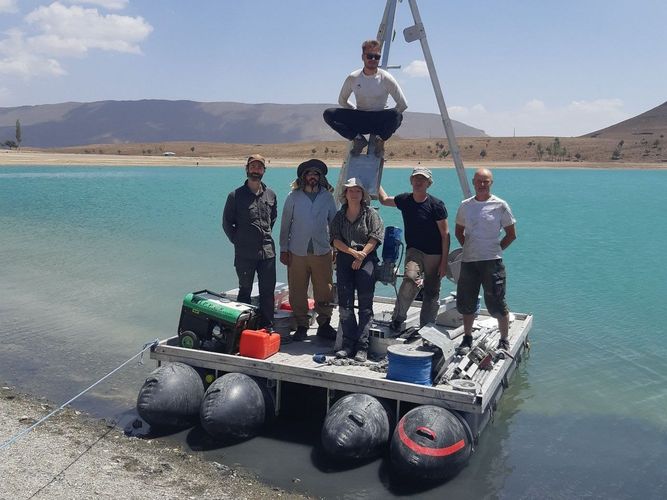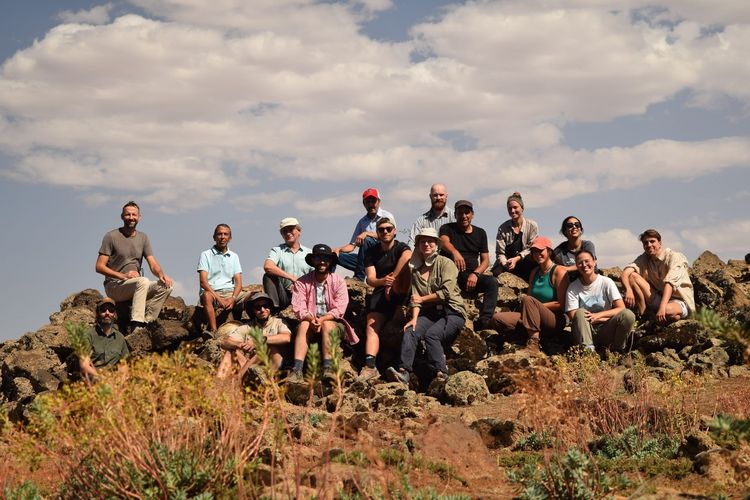During the campaign, a scientifically valuable 22.5 m long sediment core was recovered from Lake Tislit in the High Altas, which allows to examine the environmental conditions and changes in biodiversity over the last 20,000 years in high chronological resolution.
Leipzig University is cooperating closely with the Cadi Ayyad University in Marrakech in the project. The actually successful campaign was overshadowed by the severe earthquake in Morocco on September 8, 2023. The international working group was not directly affected by the earthquake and all group members were able to return home healthy. “Nevertheless, our thoughts are always with our Moroccan colleagues, especially with the cooperating Cadi Ayyad University in Marrakech, which was directly affected by the earthquake” says Christoph Zielhofer.
The field campaign will form a promising basis for further scientific cooperation with the Moroccan and international partners from France, Iceland and the United Kingdom in the next years.
































































